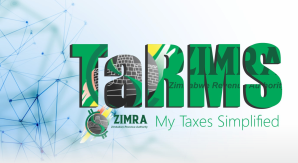Understanding Valued Added Tax (VAT) in Zimbabwe.
VAT is one of the biggest revenue contributors to our government , besides IMTT and Income Tax.
Mechanics of VAT.
VAT, is a tax on value added by each registered operator in the production/distribution chain. Imposed on taxable each stage a supply of goods or services takes place.It thus follows that all registered suppliers must charge VAT on their taxable supplies. The VAT to be accountable for by the supplier on his taxable supplies is ‘output tax’.
Tax cascading is thus avoided through netting off of input tax from output tax. It is the sum of input tax borne by a registered operator in a particular tax period that is deductible from the sum of output tax levied by him in that same tax period. The net effect of the deduction of input tax on purchases from output tax on total taxable supplies is that the registered operator does not bear any VAT.
Total burden of any VAT is borne by the final consumer. VAT should thus not be treated as a cost to registered operator unless they make exempt supplies or for some reason are denied the whole or a portion of an input tax incurred.
VAT Computations.
VAT Due = Output Tax-Input Tax.
Currently VAT is levied at 14.5%. With effect from 1 January 2023, VAT will be charged at a standard rate of 15%.
Important words in VAT Act businesses needs to grasp to Understand VAT.
Connected Persons.
The term generally refers to relationships between different persons in as far as accounting for VAT is concerned.
- The term is important because if two persons are connected in terms of the definition, it may be necessary to apply a special time and value of supply rule which may necessitate the supplier accounting for VAT on the open market value of the supply, rather than on the amount of consideration received.
- Examples of connected persons include; company and it’s Directors; Two companies with substantially the same directors; Partnership and its members.
Consideration.
In relation to the supply of goods or services to any person, includes any payment made or to be made, including any deposit on any returnable container and tax, whether in money or otherwise or any act or forbearance, whether or not voluntary, in respect of , in response to, or for the inducement of the supply of any goods or services whether by that person or by any other person
but does not include any payment made by any person as an unconditional gift to any association not for gain: provided that a deposit other than a deposit on a returnable container, whether refundable or nor not given in respect of a supply of goods or services shall not be considered as payment made for the supply unless and until the supplier applies the deposit as consideration for the supply or such deposit is forfeited’.
Key elements in the definition are
- Consideration can be either a payment or an act of forbearance.
- The Courts have indicated that “payment” has a very wide meaning and can include payment in non-monetary form or by offset of debts.
- An example of an act of forbearance would be a mortgagee surrendering the right to take possession of a property following default in payment by the mortgagor; or the forgiveness of a debt; surrendering right to sue
- A surrender of a claim to money constitutes consideration for VAT/Goods Sales Tax purposes.
- Any payment whether in money or otherwise. To the extent that the consideration is not expressed in money ( e.g barter transactions), the consideration is equal to the open market value of whatever is paid or handed over( Sec.9(3)(b)).
- A payment does not have to be voluntary in order for it to constitute consideration.
- The payment must be made in respect of, in response to or for the inducement of a supply.
- In other words, there must be a connection between the making of the payment and the supply of goods and services.
- The payment must be made for the supply.
- The consideration does not have to be provided by the person receiving the supply.
- If goods and services are supplied to one person, but payment for them is made by another person, the payment still amounts to a consideration.
- A payment made to a non-profit organisation as an unconditional gift is not consideration for a supply. The donor must receive nothing in return for the donation, and there must be no conditions attached to the making of the gift. see Barber DJC in Case D77 (1996) 17 NZTC 7483.
Entertainment.
Entertainment means the provision of any food, beverages, accommodation, entertainment, amusement, recreation or hospitality of any kind by a registered operator whether directly or indirectly to anyone in connection with am trade carried on by him. A registered operator is prohibited from claiming input tax deduction in respect of goods or services acquired by such registered operator to the extent that such goods or services are acquired for purposes of entertainment ( Section 16(2)(a) )
Goods
The term “goods” includes
- Corporeal (tangible) movable things, goods in the ordinary sense
- Any real right in those corporeal movable things
- Fixed property, land & buildings
- Any real right in such fixed property e.g. servitude, mineral rights, notarial leases e.t.c.
- Sectional title units (including timeshare)-
- Shares in a share block company-
- Postage stamps
Services
Services means anything done or to be done.
The term “services” includes: –
- Granting, assignment, cession, surrender of any right
- Making available of any facility or advantage
- Certain acts which are deemed to be services in terms of Section 7 of this act.
- Advertising agencies
- Sale of Intellectual property;
- Royalties – granting the right to use intellectual property ,ie patents, trade marks, copy rights, know-how
- Acceptance of a restraint, including agreeing not to act in a particular way;
- Acceptance of damages or compensation, including for the cancellation of agreements;
- Assignment, waiver or abandonment of a right to someone else, including in respect of the right of legal action.
- Granting of fringe benefits ( by an employer to an employee;)
- Provision of facilities by clubs, churches, charities and other non profit organizations.
- Provision of cover under an insurance contract.
Supply
The definition is very wide and includes all forms of supply irrespective of where the supply is effected, (even including things that happen by law e.g. expropriation) and any derivative of supply shall be construed accordingly.
Theoretically, any supply made outside Zimbabwe could therefore attract VAT. In this regard it should be noted that Zimbabwe does not have any “ place of supply” rules.
The Oxford English Dictionary defines “ to supply” to mean “ to furnish” or “ to provide”. There fore where anything is made available to another person the action constitutes a supply.
In Databank Systems Ltd v CIR ( 1987) 9 NZTC 2, it was held that a “ supply” as envisaged in New Zealand legislation simply meant “ to furnish with or provide”
In the South African case, Shells Annandale Far (Pty) Ltd v CSARS ( 62 SATC 97), it considered whether a vendor was liable for output tax in respect of an amount received on expropriation of its land. The vendor contended that it had performed no act that gave rise to the expropriation, instead that the notice of expropriation divested it of its ownership of the land such that no ‘supply’ had taken place. The court held that because expropriation could not give rise to a ‘supply’. Accordingly, the expropriation did not give rise to an output tax liability for the vendor whose land was expropriated.
Trade
To ascertain if a person is engaged in a taxable activity all of the following should exist:
- There must be trade or activity;
- The activity must be carried on continuously or regularly;
- By any person
- In Zimbabwe or partly in Zimbabwe
- The activity must involve supplies made to another person for a consideration.
- Whether or not for profit
Is there an activity?
- If there is no activity, a taxable activity cannot exist.
- “Activity” is not defined in the Act, but is given a wide interpretation by the courts. In Newman v C of IR (1994) 16 NZTC 11,229 at page 11,233 Fraser J said:
- [Activity] is a word of considerable breadth. The new Shorter Oxford English Dictionary 1993 ascribes a number of varying meanings or shades of meanings, none of which is exactly apposite to the word in s 6. The nearest thing, I think, is ‘an occupation, a pursuit’ and (in plural) ‘things that a person ,animal or group chooses to do’.
- The leasing of land is an “activity” for the purposes of the GST Act.
The activity must be carried on continuously or regularly
- The terms “continuously” and “regularly” are not defined in the legislation, however their meaning has been clarified to some extent by a series of Court cases, the most important of which was the Court of Appeal decision in Newman v CIR (1995) 17 NZTC 12,097.
- As a general rule, when determining whether a taxable activity exists, the words “continuously” and “regularly” can be regarded as having their ordinary meaning.
- The courts have considered the phrase “continuously or regularly” in a number of cases. In Case N27 (1991) 13 NZTC 3229 at page 3,238 Bathgate DJ stated that:
- “Continuously” means that the activity has not ceased in the permanent sense or has not been interrupted in a significant way.
- The object and purposes of any physical break in the activity, whether it be for rest, recreation, health and such like may be of importance in determining whether the activity is being carried on continuously.
- “Regularly” embodies a steadiness or uniform action, or occurrence of action, so that it recurs or is repeated at fairly fixed times, or at generally uniform intervals, to be of a habitual nature and character.
Is there a Consideration?
- An activity is a taxable activity only if it involves the supply of goods and services to another person for a consideration.
- The main requirement for a consideration is that there must be a direct or substantial nexus between the payments and the supply of goods or services.
Is the taxable activity carried on by a “person”?
- Section 2(1) further requires that the taxable activity have to be carried on by a “person”.
- “Person” is defined in the Act, and it includes a company, an individual, a club, partnership, society, association or a public entity.
- The concept of“supply”is one of the fundamentals upon which VAT is built.
- It is essential that any activity should involve, or intend to involve, the supply of goods and services before it can be considered a taxable activity (Section 2).
- A number of activities are excluded from the definition of “trade”, namely: –
- The supply of goods or services by a concern from a branch or main business,
- Private or recreational pursuits or hobbies (unless structured like a business)
To be continued



